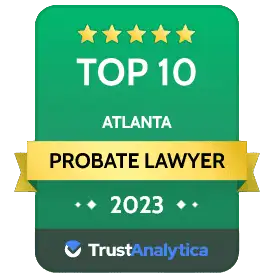Whether it’s a little mountain cabin, a lake house with a view, ranch land out west, or a beachy bungalow on the coast you have worked hard to purchase your vacation home. We know a benefit of having this property has been the laughter and joy of your whole family enjoying the use of it for years. The next big question on your mind is probably how do I keep a vacation home in your family for generations.
There are lots of things to consider when passing on properties. Here are four options for keeping your vacation home in your family for generations:
#1 Put the Home in Trust
The first and the easiest option is to put the vacation home into a Trust. You’ll name a trustee within the Trust to oversee your wishes regarding who has access to the property. This trustee can be a family member or a professional trust company. If you feel your beneficiaries are likely to fight or argue about the property, it may be best to name an unbiased third party as trustee, such as a professional trust company.
Putting the home into a Trust and naming a trustee is the easy part. The next step is making sure you fund the Trust for the maintenance of the property. While you’re living, you own the property and are paying the taxes and maintenance on it. Remember this needs to be done after you are gone too. Making sure there are assets in the Trust to cover this maintenance is important.
#2 Use a Qualified Personal Residence Trust
Another good option is the use of a Personal Residence Trust. This tool, as the name would imply, is a Trust where the property goes into the Trust for a certain amount of time— whatever you specify— and as long as you outlive that amount of time the property then transfers ownership to the beneficiaries you designate. Many people use this specific kind of trust because of the tax benefits. Personal Residence Trusts get a tax break because the gift is given so far into the future.
One major consideration about this type of Trust is that it is irrevocable. Meaning, it cannot be changed once established. So, it’s important to really know what you want before establishing this type of Trust.
#3 Family LLP
A Family LLP is a business entity in which family members are shareholders in the corporation. You can title the home to the Family LLP and the business owns it.
Keep in mind, that funding is important here too. If the sole purpose of the Family LLP is specifically to hold this property, it will not have the assets to maintain the property. Make sure the Family LLP includes other assets in order to pay taxes and upkeep the property.
#4 Leave it to a Specific Beneficiary
Another option would be to have a talk with all of your beneficiaries to determine who would want to own the property, who had the means to maintain it, and also who is willing to share the property with the extended family, if that is important to you. You can then leave the property outright to the person or persons you feel will be able to maintain the property in the way you would wish.
The reason for choosing this option rather than one of the above is primarily a funding issue. Often when homes are left in Trust without proper funding for maintenance the upkeep falls to the beneficiaries. Fights and disagreements break out because certain beneficiaries are getting the home on good dates, some are spending more of their personal money on upkeep than others, or maybe some do not actually care about the property if you’re not there.
Your vacation home is a wonderful asset and an important part of your estate. We would love to talk more about your options and how you can achieve your goal of keeping the property in the family for generations.
Call us at (404) 736-6066 or visit our website to schedule a consultation.








